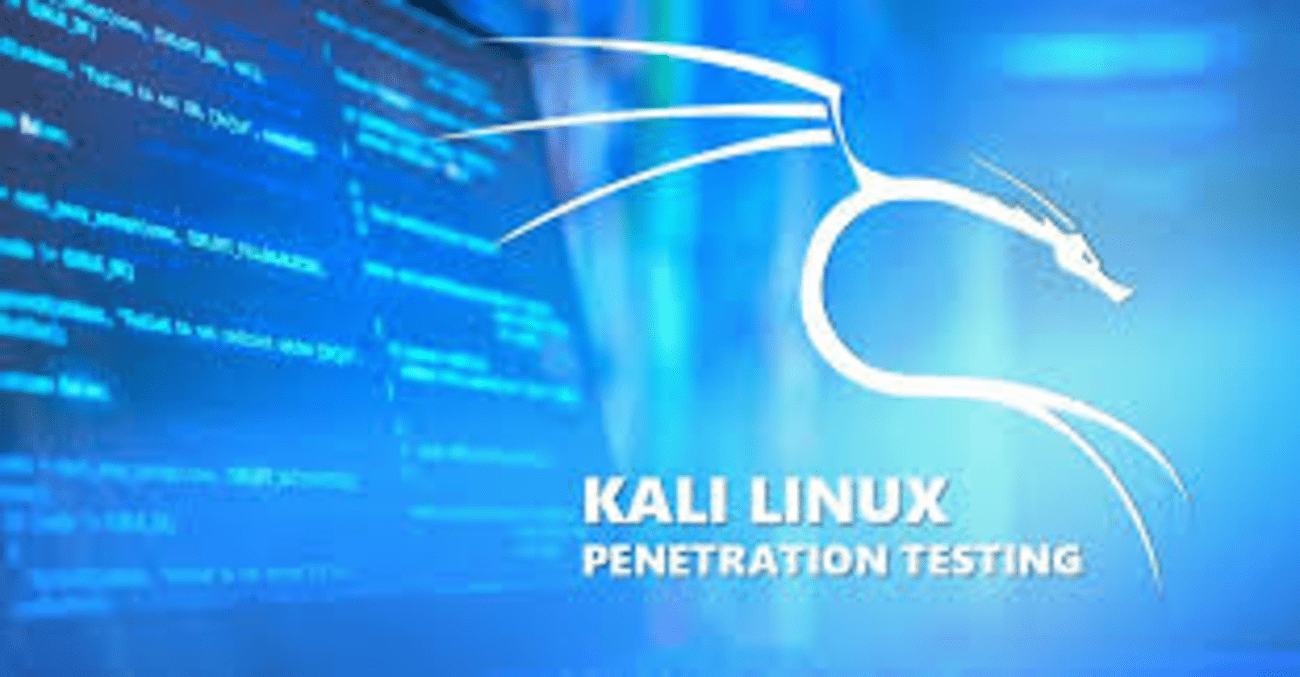Kali Linux tools and Kali Linux has emerged as a cornerstone in the realm of ethical hacking, providing an unparalleled arsenal for security professionals to safeguard networks and systems. As a Debian-based Linux distribution, Kali Linux is tailored specifically for network analysts and penetration testers, boasting a comprehensive suite of over 600 pre-installed kali Linux tools designed for a myriad of information security tasks. This powerful distribution is a popular choice among ethical hackers due to its robust range of kali Linux tools list and its foundation on Debian standards-based development. The significance of Kali Linux in modern cybersecurity cannot be overstated, with tools such as Wireshark, Metasploit, and Aircrack-ng at the forefront of penetration testing and security auditing. Ethical hacking, or kali Linux penetration testing, is a critical practice for identifying vulnerabilities within computer systems, networks, or web applications—vulnerabilities that, if exploited by malicious actors, could lead to significant security breaches.
In this article, we will delve into the essential kali Linux hacking tools and applications that make Kali Linux an indispensable weapon in the arsenal of ethical hackers. We will explore the Kali Linux environment, highlighting key tools for Linux, including Kali tools list and its applications, essential for network penetration testing, web application security testing, and wireless security assessment. From the basics of getting started with Kali Linux, to mastering kali Linux commands for advanced penetration testing, our journey will equip you with the knowledge to use Kali Linux tools to their fullest potential. Whether you’re a seasoned security professional or new to kali Linux hacking, this article aims to enhance your understanding of how these tools can be leveraged to conduct thorough security assessments, ensuring the integrity and resilience of your or your clients’ digital environments.
Table of Contents
Getting Started with Kali Linux
To kickstart your journey with Kali Linux, a Debian-based Linux distribution packed with over 600 preinstalled penetration-testing applications https://www.youtube.com/watch?v=sW0lQRl5nEE, it’s crucial to understand the various methods to run Kali Linux tailored to different needs and preferences. Here’s a rundown of the options available:
· Direct Installation on PC/Laptop: This method offers the most integrated experience but requires dedicating the entire system to Kali Linux.
· Virtualization (VirtualBox/VMware): Ideal for running Kali Linux alongside your primary operating system. To install using VirtualBox:
1. Download the OVA image from the Kali Linux website.
2. Import it into VirtualBox.
3. Follow the prompts to start and log in.
· Cloud-Based: Running Kali Linux on cloud services like AWS or Azure offers scalability and remote access.
· USB Boot Disc: For portability, running Kali Linux from a USB drive is a great option.
· Windows 10 (App): Windows users can leverage the Windows Subsystem for Linux to run Kali Linux.
· On Mac: Using virtualization software, Mac users can also run Kali Linux.
Once you’ve chosen and set up your preferred method, familiarizing yourself with the Kali Desktop is next. The desktop environment is your gateway to the plethora of tools Kali Linux offers. Key areas include:
· Applications: Access to all pre-installed tools for Linux.
· Places: Quick navigation to folders and system locations.
· Kali Linux Dock: Houses frequently used applications for quick access.
For those diving into kali Linux penetration testing, tools like Nmap and Metasploit are indispensable. Here’s a quick guide to getting started with these tools:
Nmap for Network Discovery:
· Basic Scan: nmap 10.0.2.15
· OS Detection Scan: nmap 10.28.2.26 – A
· Metasploit for Exploitation:
· Basic Usage: use exploit/windows/browse/apple_itunes_playlist Before embarking on your kali Linux hacking adventures, it’s essential to grasp the basics of the Linux command line interface. Starting with fundamental commands such as ls, cd, mkdir, rm, and cat can significantly enhance your proficiency in navigating and utilizing Kali Linux. For beginners, resources like Quora https://www.quora.com/How-do-I-learn-the-basics-of-Kali-Linux-in-the-easiest-way offer insights into learning the basics effectively.
To further hone your skills, consider:
· Practicing in a Controlled Environment: Use a virtual machine for safe experimentation.
· Online Courses and Tutorials: Platforms like Udemy, Coursera, or YouTube are rich resources for learning.
· Joining Online Communities: Connect with other users to share knowledge and experiences.
By following these steps and exploring the resources provided, you’ll be well on your way to mastering Kali Linux and its suite of tools, making it your ultimate weapon in ethical hacking.
Understanding the Kali Linux Environment

Understanding the Kali Linux environment is crucial for anyone involved in ethical hacking and security. This powerful platform is more than just an operating system; it’s a comprehensive suite for security professionals. Here are some key aspects of the Kali Linux environment that make it an essential tool for kali Linux penetration testing and security auditing:
· Pre-Installed Tools: Kali Linux comes with an impressive array of over 600 pre-installed tools https://www.guru99.com/kali-linux-tutorial.html, each designed for specific tasks in information security such as monitoring, testing, and cracking. These tools are organized into categories, making it easier for users to find what they need for a particular security task.
· Multi-Platform Accessibility: Whether you’re working on a PC, laptop, or even an ARM device, Kali Linux is a multi-platform solution that’s accessible and functional across different hardware. This flexibility ensures that kali Linux tools are available to a wide range of users, regardless of their preferred device.
· Wireless Device Support: With a custom kernel that’s patched for injection, Kali Linux supports a vast range of wireless devices. This is particularly important for tasks like network sniffing and wireless penetration testing, where the ability to interact with wireless networks is essential.
· Security and Integrity: The development process of Kali Linux prioritizes security, featuring GPG signed packages and repositories. This commitment to security means that users can trust the integrity of the kali linux apps and the system itself.
· Customization and Localization: Kali Linux is not a one-size-fits-all solution. It’s highly customizable, allowing users to tailor the environment to their needs. Additionally, it supports multiple languages, making kali linux tools list accessible to a global audience.
· Popular Tools: Among the wealth of applications, some of the most popular tools include Nmap for network exploration, Metasploit for developing and executing exploit code against a remote target machine, Wireshark for network analysis, and John the Ripper for password cracking. These tools are the backbone of many security professionals’ toolkits.
· Installation Flexibility: Users have the flexibility to install Kali Linux in a way that suits their workflow. Whether it’s on a PC or laptop for a dedicated environment, as a virtual machine for convenience, or even in the cloud for remote accessibility, Kali Linux adapts to your needs.
· Educational Resources: For those looking to deepen their knowledge and enhance their skills, Kali Linux offers various courses focused on Penetration Testing and Security Auditing. These resources are invaluable for both beginners and seasoned professionals looking to stay at the cutting edge of security practices.
By understanding these facets of the Kali Linux environment, users can leverage the full potential of kali Linux hacking tools, ensuring robust security assessments and effective penetration testing. With its extensive tools for Linux, Kali Linux stands as a pivotal resource in the realm of ethical hacking.

Key Kali Linux Tools for Ethical Hacking
In the realm of ethical hacking, having a robust toolkit is essential. Here are some key Kali Linux tools that are fundamental for any security professional:
· Nmap: This is the go-to tool for network exploration and security auditing. When you’re tasked with scanning a network or individual targets, Nmap provides detailed information about the devices connected, the ports that are open, and the services that are running on those ports. It’s versatile, supporting advanced scanning techniques, and comes with both a command-line and a graphical user interface. It’s invaluable for identifying potential entry points on a network, and it’s a tool that no ethical hacker should be without. For those new to Nmap, starting with basic scans and gradually incorporating more complex commands is a good approach to mastering this powerful tool.
· John the Ripper: Often simply referred to as ‘John’, this tool is a staple in password recovery. It’s designed to detect weak passwords that could compromise a system’s security. John the Ripper can work with many types of password hashes and is known for its ability to automatically adjust to password hash types and encryption standards. There’s also a graphical interface called Johnny for those who prefer a visual approach to password cracking.
· Metasploit Framework: This framework is an ethical hacker’s best friend for developing and executing exploit code against a remote target machine. It allows for the systematic investigation of vulnerabilities and includes a comprehensive set of exploits. Whether you’re a novice or an expert, Metasploit streamlines the hacking process, making it easier to test defenses and execute planned attacks.
· Burp Suite: For web application security, Burp Suite is the integrated toolset of choice. It helps enumerate and analyze an application’s attack surface and find security vulnerabilities. With its various tools, you can intercept traffic, map out an application’s structure, and use its advanced scanning technology to detect potential weaknesses.
· sqlmap: This open-source tool is a game-changer for testing databases for SQL injection flaws. It automates the process of detecting and exploiting SQL injection vulnerabilities, supporting a wide range of database management systems. Sqlmap can take over database servers and even access the underlying file system, making it a powerful tool for any penetration tester’s arsenal.
· Aircrack-ng: For Wi-Fi pentesting, Aircrack-ng is the suite you need. It’s designed for packet sniffing and cracking WEP and WPA/WPA2 security protocols. By using statistical analysis, Aircrack-ng can capture and decipher network packets, which is crucial in assessing wireless network security.
· Wireshark: This network protocol analyzer is a must-have for any professional looking to troubleshoot network issues or analyze traffic. It can capture and display the data traveling back and forth on a network in real-time, providing valuable insights into the network’s functioning and security.
· Nessus: Recognized as one of the most reliable vulnerability scanners, Nessus is an essential tool for cybersecurity professionals. It scans networks to identify the vulnerabilities that could be exploited by attackers. Its comprehensive database and regular updates make it an indispensable tool for vulnerability assessment.
· Nikto: This web server scanner is specialized for detecting dangerous files, outdated software, and other common security problems on web servers. It’s an open-source tool that can perform comprehensive scans to ensure web server security.
· Ettercap: A powerful suite for man-in-the-middle attacks, Ettercap allows for network traffic interception, packet analysis, and a variety of attacks on a switched LAN. It’s a tool that’s both comprehensive and effective for network security testing.
By integrating these tools into your ethical hacking practices, you can ensure a thorough and effective security assessment. Utilizing the Kali Linux tools list https://www.javatpoint.com/top-10-kali-linux-tools-for-hacking and mastering Kali Linux commands https://www.stationx.net/penetration-testing-tools-for-kali-linux/ are vital steps toward becoming proficient in Kali Linux penetration testing. Remember to always use these tools in a responsible and ethical manner, ensuring the security and integrity of the systems you are testing.

Network Penetration Testing with Kali Linux
Embarking on network penetration testing with Kali Linux is a strategic approach to uncovering potential security threats that could be exploited by attackers. Here’s how to harness the power of Kali Linux tools for effective penetration testing:
Step-by-Step Network Penetration Testing
1. Setting Up Kali Linux:
· Install Kali Linux as your primary operating system or within a virtual machine for isolated testing environments.
· Ensure you’re running the latest version by regularly updating your system, which equips you with up-to-date tools and security patches.
2. Tool Familiarization:
· Begin with Nmap for comprehensive network scanning to identify active devices and open ports.
· Use Wireshark for in-depth protocol analysis and network traffic monitoring to pinpoint irregularities.
· Employ Metasploit for penetration testing to assess vulnerabilities and simulate attack scenarios.
· Leverage Aircrack-ng for assessing the security of Wi-Fi networks, crucial for wireless penetration testing.
3 Skill Enhancement:
· Deepen your understanding of networking concepts, operating systems, and system security, which are foundational for effective penetration testing.
· Develop proficiency in Linux and networking, as these skills are pivotal for navigating and utilizing Kali Linux tools.
· Enhance your search capabilities on Google, as it’s an indispensable resource for finding solutions and learning new techniques.
Continuous Learning and Practice
· Educational Resources:
· Dive into texts like The Hacker Playbook 3 and The Penetration Testing series for advanced strategies and insights.
· Engage with interactive platforms such as OverTheWire and HackThisSite to put your skills to the test in real-world scenarios.
· Follow channels like Computerphile on YouTube for visual and comprehensive explanations of complex concepts.
· Expanding Knowledge Base:
· Stay updated with various network protocols and continuously learn new techniques by regularly using search engines.
· Participate in Capture The Flag (CTF) events, which are excellent opportunities to practice and refine your penetration testing skills.
· Specialized Training:·
· Consider enrolling in specialized courses offered by IPPSEC, PWK and eLearning, PentesLAB, Cybrary, and pentest academy to gain expert knowledge in penetration testing.
Ethical Considerations and Documentation
· Authorization and Documentation:
· Always obtain proper authorization before conducting penetration tests to ensure legal compliance.
· Meticulously document all steps taken and findings discovered during the testing process.
· Report all vulnerabilities found along with recommendations for remediation to help strengthen the network’s security posture.
By integrating these steps into your Kali Linux penetration testing routine, you’re not only enhancing your skills but also contributing to a more secure digital environment. Remember, the key to success in using Kali Linux tools is a combination of hands-on practice, continuous learning, and ethical hacking principles.
Web Application Security Testing with Kali Linux
In the pursuit of securing web applications using Kali Linux tools, there are several key tools and frameworks that stand out for their effectiveness in identifying vulnerabilities. Here’s how to utilize these tools for comprehensive web application security testing:
Integrated Platforms for Web Application Security Testing
· Burp Suite: This is an all-in-one platform for web application security testing. It includes a variety of modules for different stages of testing, such as: To start using Burp Suite, ensure it’s installed on your Kali Linux system. You can then configure your browser to route traffic through Burp Suite to intercept, monitor, and manipulate requests sent to the web application.
· Mapping: Automatically discovers new content and functionality.
· Scanning: Performs automated scans to find vulnerabilities like SQL injection and cross-site scripting (XSS).
· Attacking: Allows manual testing for more sophisticated attacks.
· OWASP ZAP (Zed Attack Proxy): This tool is excellent for both beginners and experienced pentesters. It provides: Launch ZAP from the Kali applications menu, set up a local proxy, and start assessing the security of your web apps.
· Automated Scanners: Quickly finds vulnerabilities in web applications.
· Manual Testing Tools: Offers flexibility for customized attacks and deeper analysis.
Specialized Tools for Specific Vulnerabilities
· sqlmap: Automates the detection and exploitation of SQL injection issues. With support for 34 databases, it’s a versatile tool that can be used as follows:
· Identify a potential SQL injection point in a web application.
· Execute sqlmap -u ‘URL’ –risk=3 –level=5 to perform an in-depth analysis of the injection point.
· Analyze the results to understand the database structure and extract data.
· Nikto: Conducts comprehensive tests against web servers to identify dangerous files, outdated software, and specific vulnerabilities. To use Nikto:
· Run nikto -h [target IP or hostname] to start scanning the target server.
· Review the output for any security issues that require attention.
Tools for Exploiting and Validating Vulnerabilities
· Metasploit Framework: Simplifies the hacking process with various tools required for exploiting vulnerabilities. Here’s how you can use it:
· Search for an appropriate exploit for the identified vulnerability.
· Configure the payload and options based on the target system.
· Launch the exploit to test the vulnerability’s exploitability.
· Vega: A scanner and testing platform to find vulnerabilities such as SQL Injection and XSS. Vega can be used to:
· Run automated scans against a web application.
· Manually inspect and validate the findings for false positives.
Additional Tools for Comprehensive Testing
· Database Tools: Tools like sqlmap and sqlninja are invaluable for automating SQL injection vulnerability detection and exploitation.
· CMS Scanning Tools: WPScan and Joomscan help identify security weaknesses in popular content management systems like WordPress and Joomla.
· SSL Scanning Tools: TLSSLed evaluates the security of SSL/TLS web server implementations, ensuring encrypted communications are secure.
· w3af: The Web Application Attack and Audit Framework, known as w3af, is essential for identifying and exploiting web application vulnerabilities.
By incorporating these Kali Linux tools into your web application security testing process, you can ensure a thorough evaluation of potential security risks. Remember to use Kali Linux penetration testing tools responsibly and with the necessary permissions to maintain ethical standards. For a deeper dive into these tools, consider exploring the comprehensive Kali Linux web penetration testing tools https://www.tutorialspoint.com/kali_linux/kali_linux_website_penetration_testing.htm and Kali Linux tools list https://www.javatpoint.com/kali-linux-web-penetration-testing-tools available to enhance your security testing capabilities.
Wireless Security Assessment using Kali Linux
As we continue to explore the capabilities of Kali Linux in the realm of ethical hacking, wireless security assessment stands out as a critical area for penetration testers. With the increasing reliance on wireless networks, the importance of securing them cannot be overstated. Here’s how to get started with wireless penetration testing using Kali Linux:
Learning Wireless Penetration Testing
· Beginner’s Guide: The “Kali Linux Wireless Penetration Testing Beginner’s Guide” https://github.com/PacktPublishing/Kali-Linux-Wireless-Penetration-Testing-Beginners-Guide-Third-Edition/blob/master/README.md (3rd edition) by Cameron Buchanan and Vivek Ramachandran is an excellent starting point for those new to wireless security. It provides a step-by-step approach to setting up a wireless lab, which is crucial for a safe and controlled learning environment.
· Advanced Techniques: As you progress, you’ll learn to sniff out wireless packets and uncover hidden networks and SSIDs. The guide also covers the intricacies of capturing and cracking WPA-2 keys, which is vital for understanding wireless network security.
Understanding and Defending Against Attacks
· KRACK Attack: A significant portion of the guide is dedicated to understanding and defending against the KRACK attack. This vulnerability poses a serious threat to Wi-Fi security, and learning how to defend against it is essential for any ethical hacker.
· Radius Authentication Attacks: The book also delves into attacking radius authentication systems, providing insights into more complex wireless security challenges.
Practical Application and Resources
· Hands-on Experience: Applying the knowledge from the guide is key to mastering wireless penetration testing. Practice decrypting encrypted traffic with stolen keys to understand the real-world implications of these security breaches.
· Available Formats: For convenience, the guide is available in both eBook https://store.logicaloperations.com/reference-guide-kali-linux-wireless-penetration-testing-cookbook.html and print formats, priced at $20.98 and $22.99 respectively, making it accessible for learners with different preferences.
Reviews and Community Feedback
· Peer Reviews: The guide has been well-received by the community, with an average rating of 4.4 out of 5 stars https://valsec.barnesandnoble.com/w/kali-linux-wireless-penetration-testing-beginners-guide-cameron-buchanan/1137373003?ean=9781783280414 based on 78 customer reviews. This feedback is indicative of the guide’s value to both beginners and those looking to deepen their understanding of wireless network attacks.
Incorporating these resources into your learning path will enhance your proficiency in using Kali Linux tools for wireless security assessments. Remember, the goal is to not only identify vulnerabilities but also to understand how to protect against them, ensuring the security of wireless networks.
Conclusion
As we conclude, it’s clear that Kali Linux is an essential tool for ethical hackers, providing a vast array of pre-installed applications critical for effective network analysis, penetration testing, and security auditing. Throughout this exploration, we’ve highlighted how utilizing these sophisticated tools—ranging from Nmap and Metasploit to Aircrack-ng and Wireshark—can greatly enhance the identification and mitigation of vulnerabilities in digital systems. The information detailed here arms security professionals with the technical insights necessary to conduct comprehensive security assessments, reinforcing the integrity and resilience of networks against potential threats.
The broader implications of mastering Kali Linux and its suite of tools resonate with the need for constant vigilance in cybersecurity practices. As technology continues to evolve and the landscape of cyber threats becomes increasingly complex, the knowledge and skills imparted by Kali Linux are more vital than ever. It’s a reminder to the ethical hacking community to persist in the pursuit of learning and innovation, ensuring our collective cybersecurity readiness for the challenges that lie ahead. Whether for those beginning their journey in cybersecurity or seasoned veterans, Kali Linux remains the weapon of choice to test defenses and protect against the unknown.
FAQs
What are the top tools available in Kali Linux for ethical hacking? Kali Linux boasts a suite of potent tools for ethical hacking, including:
· Nmap: A command-line network exploration tool that identifies hosts, networks, and services.
· Netcat: A versatile networking utility.
· Fluxion: A tool for Wi-Fi analysis.
· Lynis: A security auditing tool.
· Nessus: A vulnerability scanner.
· Tiger: A security scanner.
· John the Ripper: A password cracker.
· Hydra: A login cracker.
How suitable is Kali Linux for ethical hacking? Kali Linux is highly regarded in the field of ethical hacking. It provides a comprehensive collection of tools for penetration testing and security auditing, making it a preferred choice among security professionals and ethical hackers.
Is utilizing Kali Linux legally permissible? Yes, employing Kali Linux is legal when used for ethical hacking and security testing objectives.
Is Kali Linux the most popular operating system for ethical hacking? Kali Linux is extensively utilized for advanced penetration testing and security auditing. It includes a vast array of tools designed for tasks like penetration testing, security research, computer forensics, and reverse engineering.
Why is Kali Linux favored by many hackers? Kali Linux is a favorite among hackers due to its comprehensive set of pre-installed hacking tools. It’s also free, making it an attractive option for those new to ethical hacking.
Is there an alternative operating system that rivals Kali Linux? Parrot OS is an alternative that comes with a toolkit similar to Kali’s. It stands out with features that support encryption, privacy, and anonymity, and its menu system is user-friendly.
Why might Kali Linux not be the choice for certain hackers? Kali Linux may not be preferred by some hackers as it is tailored for penetration testing and comes with tools specific to this field. It may not be suitable for hackers who do not engage in penetration testing activities.
Do experts in ethical hacking use Kali Linux? Yes, Kali Linux is a widely-used operating system among ethical hackers and cybersecurity professionals. It is specifically tailored for penetration testing and network security, making it a valuable tool for these experts.
What is considered the leading operating system for hacking? Kali Linux is recognized as the most widely used operating system for ethical hacking. It is a Debian-based Linux distribution developed for digital forensics and penetration testing and is supported by Offensive Security Ltd. Kali Linux includes tools for a variety of security-related tasks, including the first open-source Android penetration test platform for Nexus devices.
Experts in ethical hacking commonly utilize Kali Linux as it is a widely-used operating system tailored specifically for penetration testing and network security. Recognized as the leading operating system in the field, Kali Linux offers a comprehensive range of tools and features developed for digital forensics and penetration testing.





